(Hey, I’m getting an alert that this post is “too long for email.” I think it’s all the pictures. All that means is that if you’re reading this via email, you won’t see the whole post, you’ll need to click a link somewhere in your email to see the whole thing.)
I love China. Oh sure, there’s plenty to hate (and I won’t go into that here for reasons that will be obvious to some) but I love the Chinese people and Chinese culture. In 27 years of traveling to China, my experiences have been close to 100% positive.
Previous China Trips
I first went to China in 1997. My second wife and I went to Guilin (for the magnificent scenery), Xi’an (terracotta warriors), Shanghai, and Beijing. We had booked this deluxe thing, maybe from Cathay Pacific or AmEx, so in each city we had our own guide, car, and driver. Pretty damned luxe, eh? In Beijing I told my wife (who speaks at least 4 Chinese dialects) that I wanted to walk around for a few hours on my own and see what it would be like. I wanted to see what it would be like to try to interact with people without someone who could interpret for me. I was always glad I did that because everyone was so friendly and welcoming to the stupid foreigner.
In the 00’s, when I was part of a team starting a joint venture for Warner Home Video, I got to spend a little more time in Beijing (where the JV partner and some of the customers were based) and a ton of time in Shanghai (where our office would be based).
At one point I enrolled at Fudan University to study Putonghua. I stayed in the International Students Dormitory (even back then I was the oldest person there, by far) and bought a cheap bicycle for getting to and from class and to check out the neighborhood in the evenings. It was such a fun time.
I used to love to spend Saturdays or Sundays in Shenzhen. It was a lot easier (and cheaper) to get to than Macau. My favorite Sichuan restaurant was there, a short taxi ride from the train station. The Lo Wu shopping mall had a restaurant where I could order some dim sum and a pot of tea and sit there for two hours and spend less than Y50. (Today that’s about US$7.) I go around the shopping mall buying knockoff Super Dry and Mastermind t-shirts and then I’d head for one of the massage palaces - multi-level buildings where you could have a meal, watch a movie, play some pool, get a 90 minute massage, and even keep the massage room over night as a tiny hotel room, all for just Y99.
Also in the 00’s, when I was single, my thing was to date women who lived in Shenzhen or Guangzhou. It was easy to meet them first online. And the thing was (I know many of you may find this offensive, what can I say? I was an asshole. I’m still an asshole today but hopefully less assholish than I used to be) I could go to Shenzhen or Guangzhou to spend the weekends with them but they couldn’t cross the border into Hong Kong. That left me free to go as crazy as I wanted in Hong Kong during the week.
Some of these relationships were on the verge of being serious. There was this woman who was something of a cable TV star in Guangzhou, who spent half the year each year in Italy, France, and Monte Carlo. It didn’t last (obviously). For awhile I was seeing someone who lived in Shenzhen. But there was also a woman in Beijing whom I only knew for a weekend and yet in that short time she managed to really break my heart. That was in 2004 and it’s a story for another time.
More than likely my last trip across the border from Hong Kong to Shenzhen would have been in 2014. My ten year visa would have expired around then and I didn’t bother to renew it as we were moving to the Philippines.
Essential Apps
But before I get into the details of that, I want to tell those of you who haven’t been to China recently (or at all) that going to China in 2024 is a completely different experience than it was in 1997 or 2004 or 2014. The two factors behind this are the mobile phone and the internet. This combination opens up the experience, the entire country, to non-Chinese speakers, in ways that simply were not possible in the past.
First of all, I didn’t have to worry about having cash in my pocket or finding an ATM that would accept a foreign bank card. That’s because everywhere you go, you can pay with an app. There’s both WeChat and AliPay, most people use WeChat. You’d either scan a QR code or display your own code for the staff to scan, and boom, you’ve paid. And yes, both of those apps allow you to configure them with foreign bank cards.
WeChat, in fact, is an “everything app.” It’s social media, it’s chatting with friends, group chats, finding friends. There’s lots of little mini-apps that one can load inside of it. Most of the restaurants I went to had a QR code on the table (often round instead of square). Scan the code using the WeChat app and you’d get the restaurant menu. Order on your phone. Pay on your phone. On the one hand you might miss the human interaction (which is limited in China due to lack of language skills on both sides). On the other hand you’re never left sitting there waiting for a waiter. It’s very efficient.
The next app is DiDi Rider. It’s China’s version of Uber. It’s better than Uber’s app. I no longer needed to carry around a book of 100 business cards to show to taxi drivers. I could input my desired destination in English. I’d then be offered 8 different options, levels of cars from taxis up to “premium”, to choose from. The map showing where the car was while on its way to me would even display countdowns for traffic lights. I could send texts to the driver in English and the app would translate my texts into Chinese, and vice versa. Getting around town was a breeze. (One tip - when you get in the car, most drivers will ask a question in Chinese. They want to know the last four digits of your phone number to make certain you’re the correct passenger. I’d just show them the screen on the app, they’d nod, and off we’d go.)
The third app to know is Baidu Translate. In China, everyone uses this. Wherever you go, staff will type or talk into the app and it will instantly translate into English. And of course the app does English to Chinese as well. Google’s apps (including Google Translate) are officially blocked in China. Even though I could access them under certain circumstances, Baidu Translate was faster and appeared to be more accurate.
So there you have it. I could do a month in Beijing without any cash in my pocket. I could get anywhere I wanted to go. I could go into any restaurant, even little hole in the wall joints, and get fabulous food. Everything was easy. Everything was effortless. (Just don’t leave your phone in your hotel room or let the battery run down!)
Beijing November/December 2023
I returned to Beijing for the first time in almost 20 years in November and December, 2023. It was freezing fucking cold there. I chose a hotel that was quite nice (Marriott Beijing North East, for the Bonvoy points) but didn’t have anything of interest in easy walking distance. The staff didn’t speak much English but the doormen cracked up at some of the Chinese phrases I knew, and they always looked after me. (Every time I went down to smoke, they’d check to see that I had my thermal underwear on!)
(If I’ve said this once, I’ve said it a hundred times. Chinese people, especially those who hold traditional values, are some of the nicest and friendliest people on the planet. It’s very simple: if you want respect, show respect. You get it back in spades.)
I ended up going to Sanlitun many nights. The Sanlitun I knew from 20 years before was long gone. The stretch of dive bars was replaced with an expensive outdoor shopping mall. I went to Wangfujing one night and saw that it now had a Tiffany’s and a Cartier and even a Cheesecake Factory. Yeesh.
But I also saw enough to see that with better weather, it would be a fabulous city, and I was right about that.
I went back for a week in April. The weather was glorious. I stayed at the Metropark Hotel, recommended by German colleagues, and I fucking hated the hotel (it was 80 degrees outside but they wouldn’t turn on the air conditioning because it was April) but loved the area. I’ve seen it referred to as Lido and sometimes Lidu. A park with a lake in the center, surrounded by restaurants with outdoor seating. There was a branch of a brewpub chain called Great Leap - nice IPA’s, so-so food. From there I also discovered the nearby Indigo Mall, a relatively new shopping mall from the folks at Swire. I saw there was a Swire hotel attached, East Beijing, and I arranged to stay there in May.
798 Art District
We have two offices in Beijing, and they’re on opposite sides of the 798 Art District, which meant that I got to walk through it any time I needed to go between buildings. We also had lunch at some of the various restaurants there.
That’s sliced fish and pig intestines - and this is the first time I actually enjoyed pig intestines.
Another day, another restaurant, the sweet and sour fish above is one of the dishes we shared.
I just love walking through 798 when the weather is nice.
“Make amusing people amusing”
Flying Cars?
Meanwhile, in the plaza outside our office, there were more than 20 different electric cars on display, all different Chinese brands.
One day there were two flying car prototypes as well.
Side Trip to Hong Kong and Macau
The first week in May is the Labour Day holiday in China, which meant I was able to fly down to Hong Kong for the week and spend my 70th birthday with my wife. To get the cheapest flights, I had to fly out of Beijing’s new Daxing Airport. Supposedly the largest airport in the world, it’s an hour south of the city but actually much nicer than the older Beijing Capital International Airport that everyone knows.
On the day of my birthday, I used Bonvoy points for a one night stay in the Mira Hotel in Causeway Bay, a really nice boutique-ish hotel, small rooms but nice artistic touches throughout. For my birthday dinner, I wanted spicy crab and my wife wanted sushi so we “compromised” and had hot pot! We also did a side trip to Macau, one night at the Sheraton Grand (a 5-star that’s part of the Londoner complex on Cotai, again using points). As always in Macau, casinos were not on our agenda. We had a horrible dinner (long story that I won’t go into here) but a great lunch at Fernando’s, which has been a favorite place of mine since I first went there in 1995. My wife fell in love with the mall at the Venetian, but that was as expected.
Back in Beijing
And then I returned to Beijing for two weeks, this time staying at the East Beijing hotel. It turns out my company had a corporate rate with Swire, so that hotel cost Y770 (US$110) per night, tax included, breakfast included. The shopping mall next door has at least 20 restaurants (I didn’t count), an international supermarket, and a 7-11. I loved it, even though for 12 nights my “view” was of the construction site next door.
The first week back was difficult in a not-entirely unexpected way. The two people who traveled from the US to join me that week were both vegetarians. I didn’t want to run off and leave them on their own as it was their first time in China. I didn’t know any vegetarian restaurants but I chose places with lots of vegetable and rice options on their menus. For lunch each day they wanted either Indian food or Subway. For dinner some nights they would tell me they had a lot of fruit in their rooms.
The second week was a lot better; the two people who came out from the US were pretty much omnivores and very much into exploring. I’ll mention some of the stand-outs for us.
Food, Food, Food!
Of course they wanted Peking Duck for their first meal. I had in mind to go to Da Dong (Michelin-starred), Si Ji Minfu (recommended by many web sites), or Jingzun (a place in the Sanlitun area that I’d been to in November). But then someone in the office recommended a different chain, one called Xihe Yayuan. They have a branch in the shopping mall next to the hotel and the guys I was meeting had just gotten off a plane. I knew they wouldn’t want to travel far so we went there. And you know what? This was probably the best Peking Duck I’ve had in my entire life. The duck skin was amazingly crispy, not greasy at all, amazing flavor. Served with the “8 traditional condiments,” a full duck cost Y298 (US$42), or there was another version with truffles for Y398 (US$56) but we passed on that. The restaurant had a huge menu (duck was the first 4 pages, maybe there was another 50+ pages after that) and everything else we ordered there was perfectly cooked. We went back there for dinner my last night in town and then the two guys went back there again the very next night.
(The last photo is kung pao prawns, the best I’ve ever had it.)
The same shopping mall had a restaurant called Chua Lam’s Dim Sum, which was as good as any dim sum I ever had in Hong Kong.
The Indigo mall also has a really authentic Sichuan restaurant (I forget the name); a branch of Blue Frog (a Chinese version of TGI Friday); Gaga (a local chain serving healthy-ish western food; I had an amazing steak salad dish there); a Thai restaurant that had a decent bowl of laksa for whatever reason; the worst Shake Shack I’ve ever been to anywhere in the world.)
Another great find was this real old hole in the wall joint for hot pot. I asked at the hotel front desk which branch of Hai Di Lao we should go to, since every website in the world recommends that chain for hot pot. They told me there was a place in walking distance of the hotel that locals really love. The English name is, I think, Jiang Tai Hot Pot. And this is where Baidu Translate really came in handy. No one there spoke a word of English. There was no app for the menu, just a piece of paper, two-sided, in Chinese. I used the Baidu translation app and we got beef, lamb, fishballs, mushrooms, veg, spicy soup base … everything we wanted. Plus the staff there were amazing. One of them saw that when I went outside to smoke, I was taking pictures of the restaurant. She came out and offered to take my photo in front of the place!
The third place was something that we wandered into almost by accident. We were looking for something on the lighter side and I thought Chinese barbecue would fit the bill, and I remembered see this place called Ben San Barbecue not far from the hotel. They had the barbecue, yes, and they also had what I can best describe as a Sichuan-style crawfish boil that was amazing. I had to go back a few nights later to get it a second time. The tank next to the live crawfish had live catfish, we saw it on some other tables and it looked fantastic, but we didn’t get to it either night. Next time!
In search of a bar, someone recommended a brewpub in the Sanlitun area called Jing-A. It was fantastic. I think it had 24 of their own beers on tap and the one I tried was as good as any IPA I’ve had anywhere. The food was quite okay too. We were here for Saturday lunch. I wanted to go back one night during the week to check them out again but the opportunity wasn’t there. (It turned out that the hotel bar was serving their beers.)
My final recommendation is a hutong - one of those alleyways filled with traditional Chinese style houses - that was converted into a tourist street that stretches 800 meters. It’s called Nan Luo Gu Xiang, it was packed with people, and filled with shops and restaurants. I filled up a bag with the same kind of tourist souvenir stuff you find in the Silk Road mall, but much lower prices here. I also bought some Chinese pastries and some sort of mixed fruit tea and Russian dark chocolate bars. My friend went crazy buying Dragon Ball Z stuff and White Rabbit candy; he had to buy another suitcase. We noticed a bar there called Wiggly Jiggly and a place called “Not A Bar”. The cross streets at either end of the alley are filled with restaurants.
So there you have it. I left Beijing feeling as if I wanted to stay longer, and isn’t that the best way to go? I’m hoping to get back there in September or October.





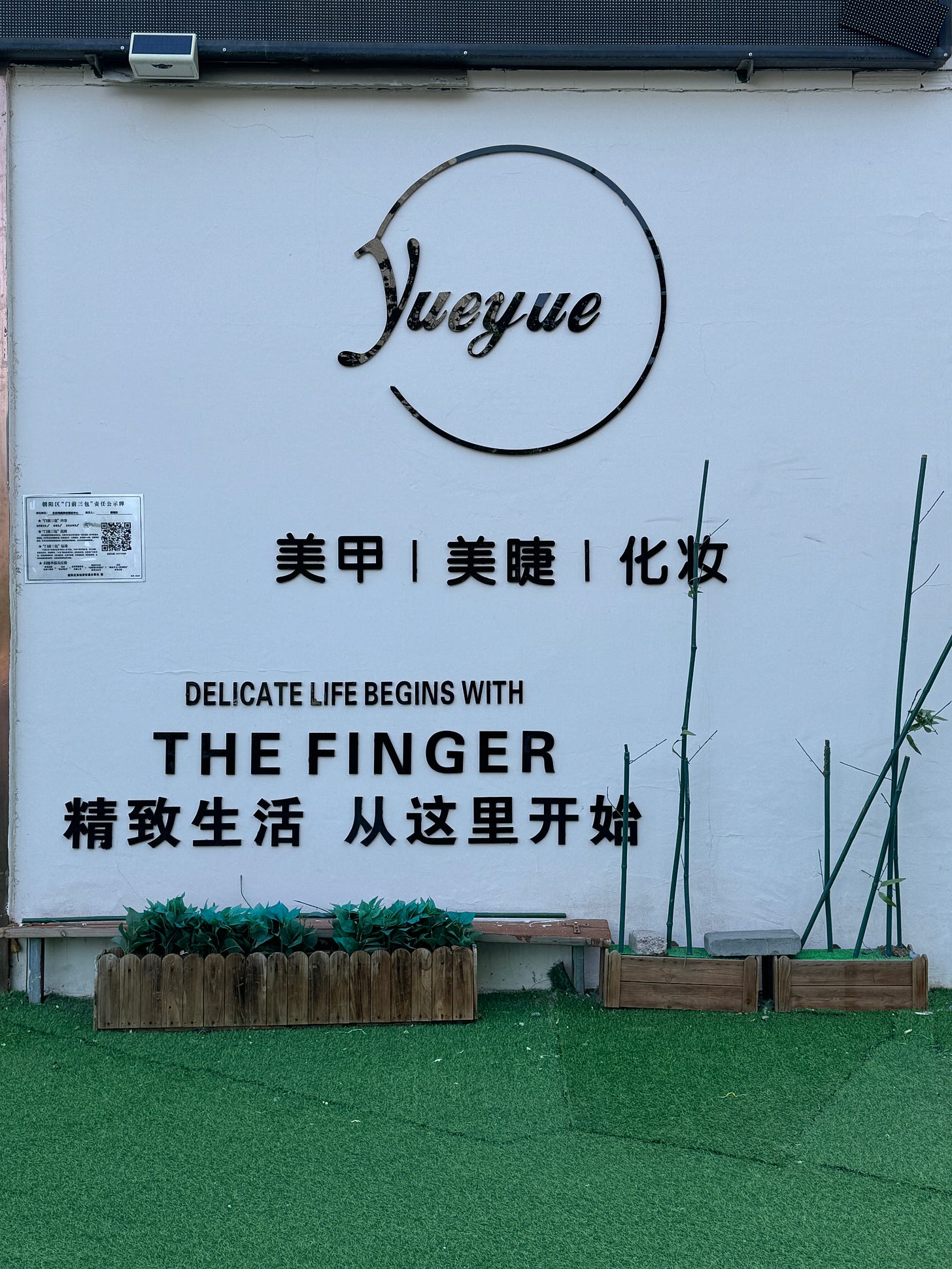



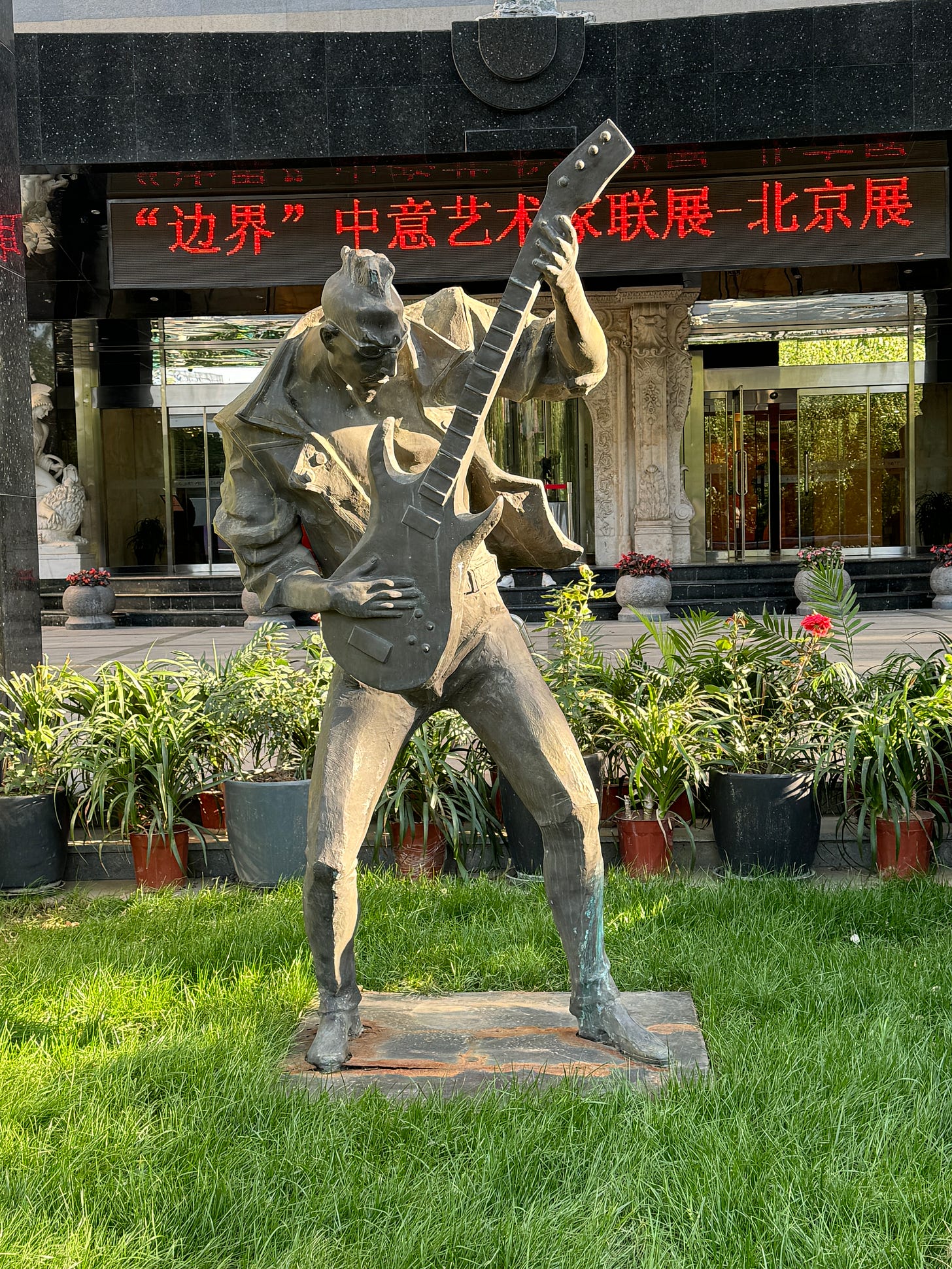

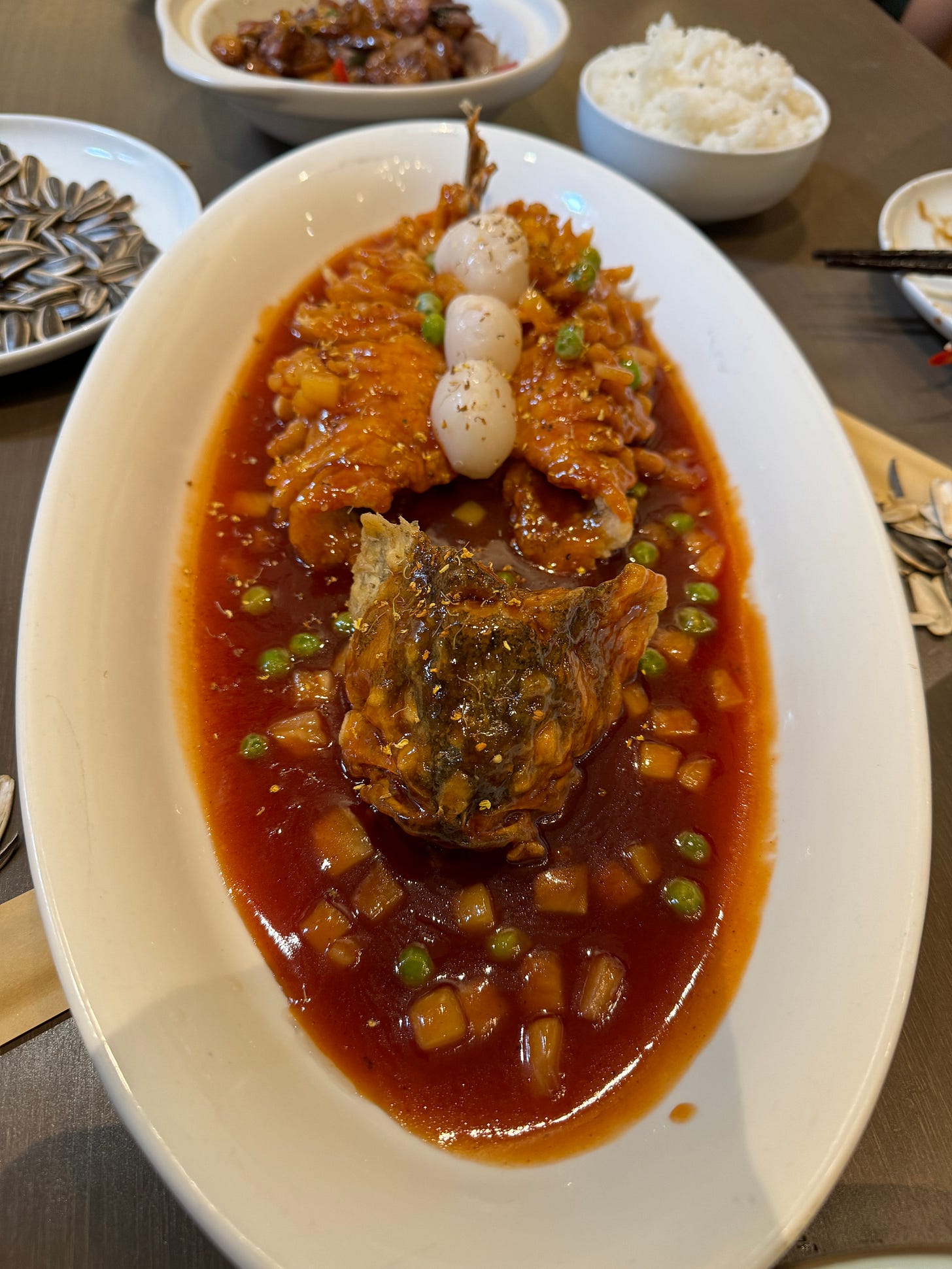
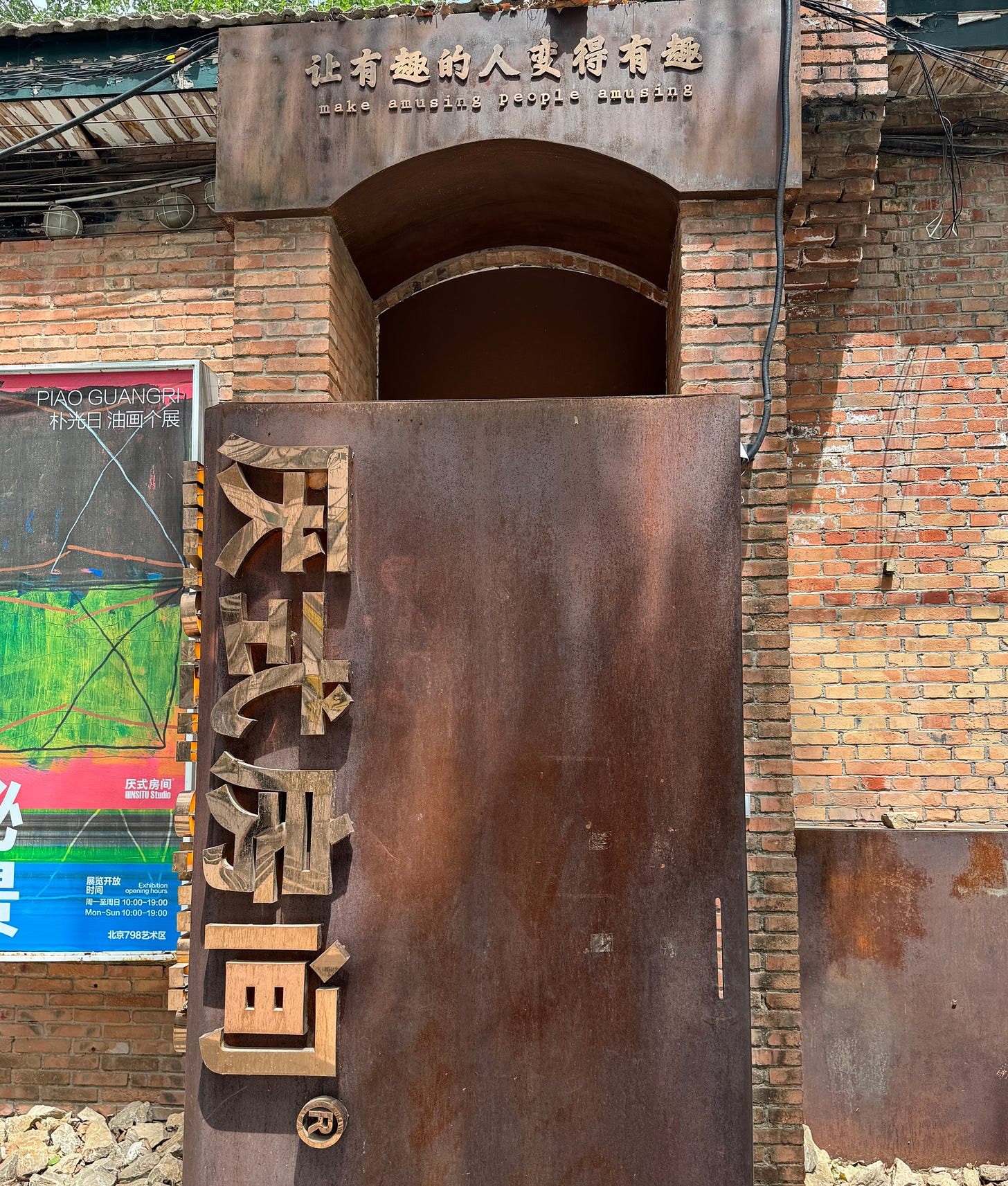
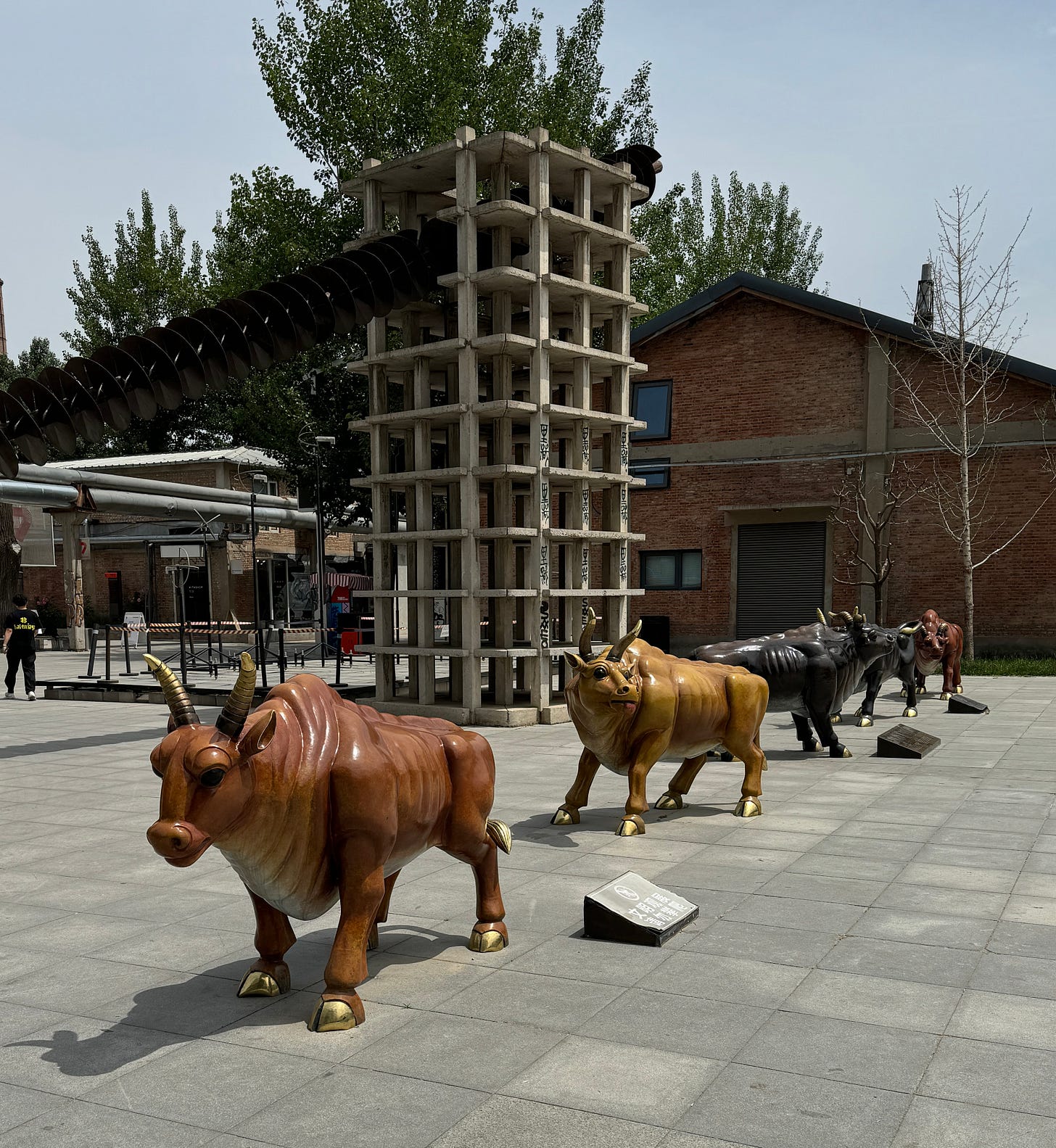

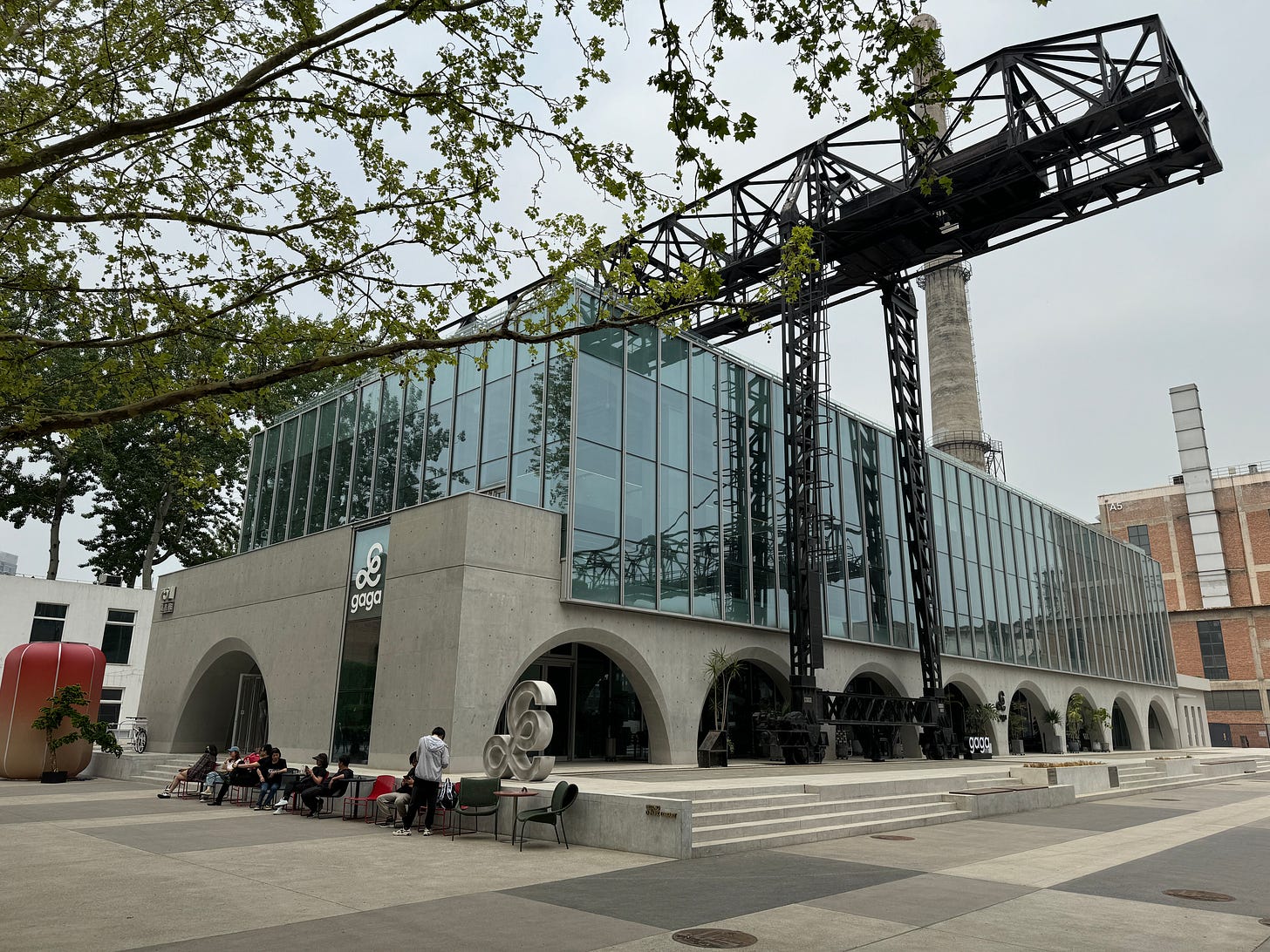
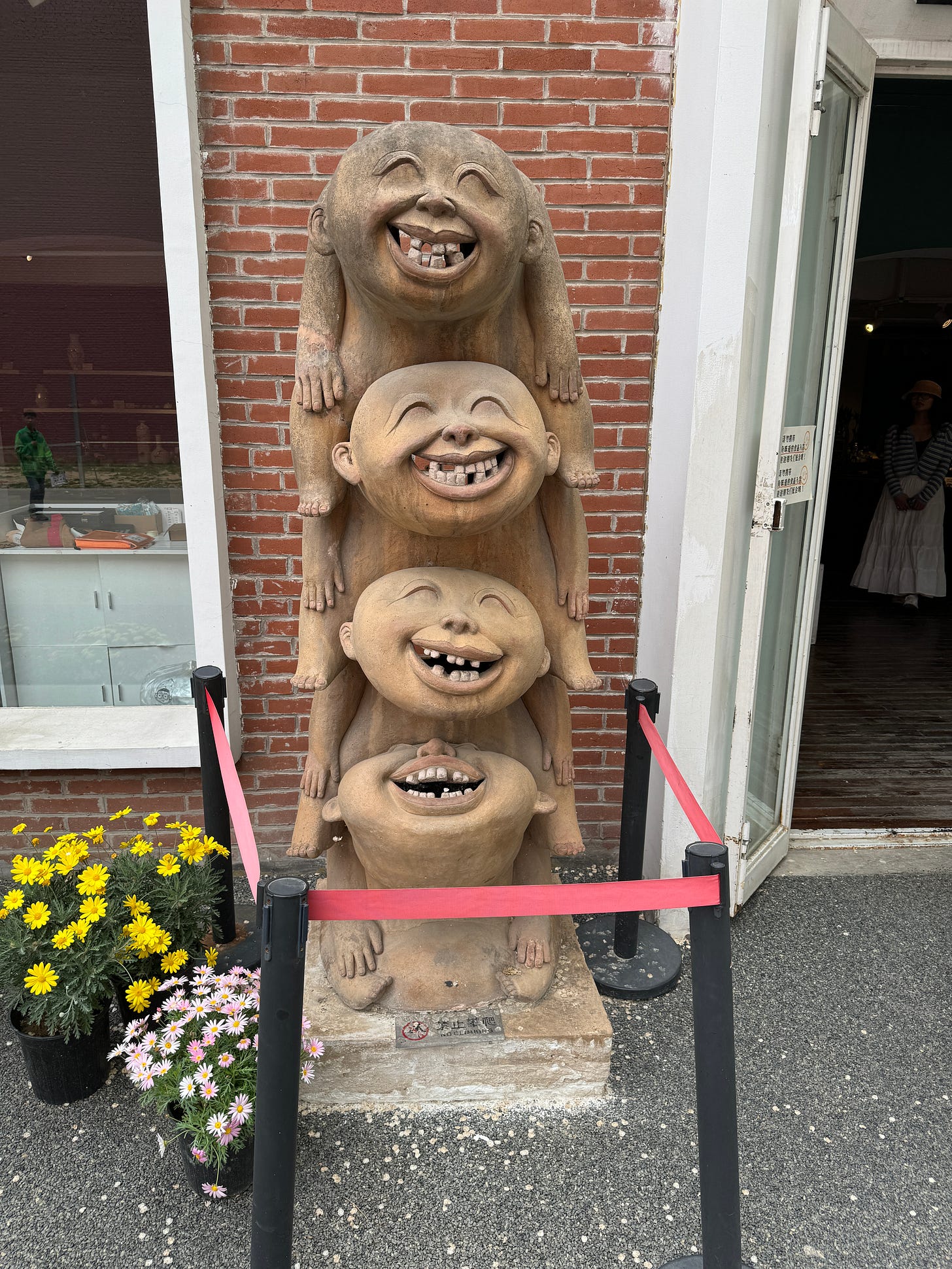
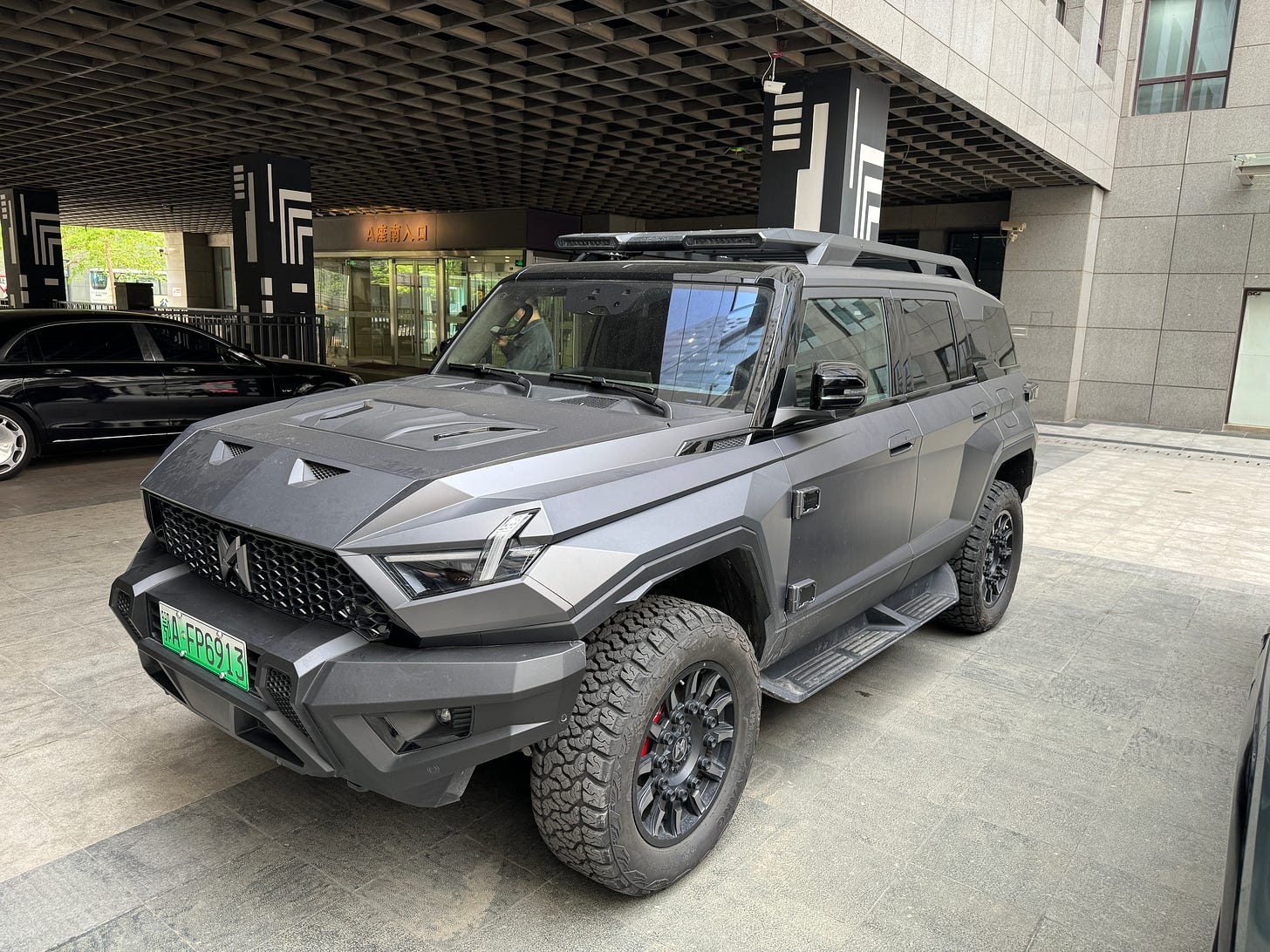
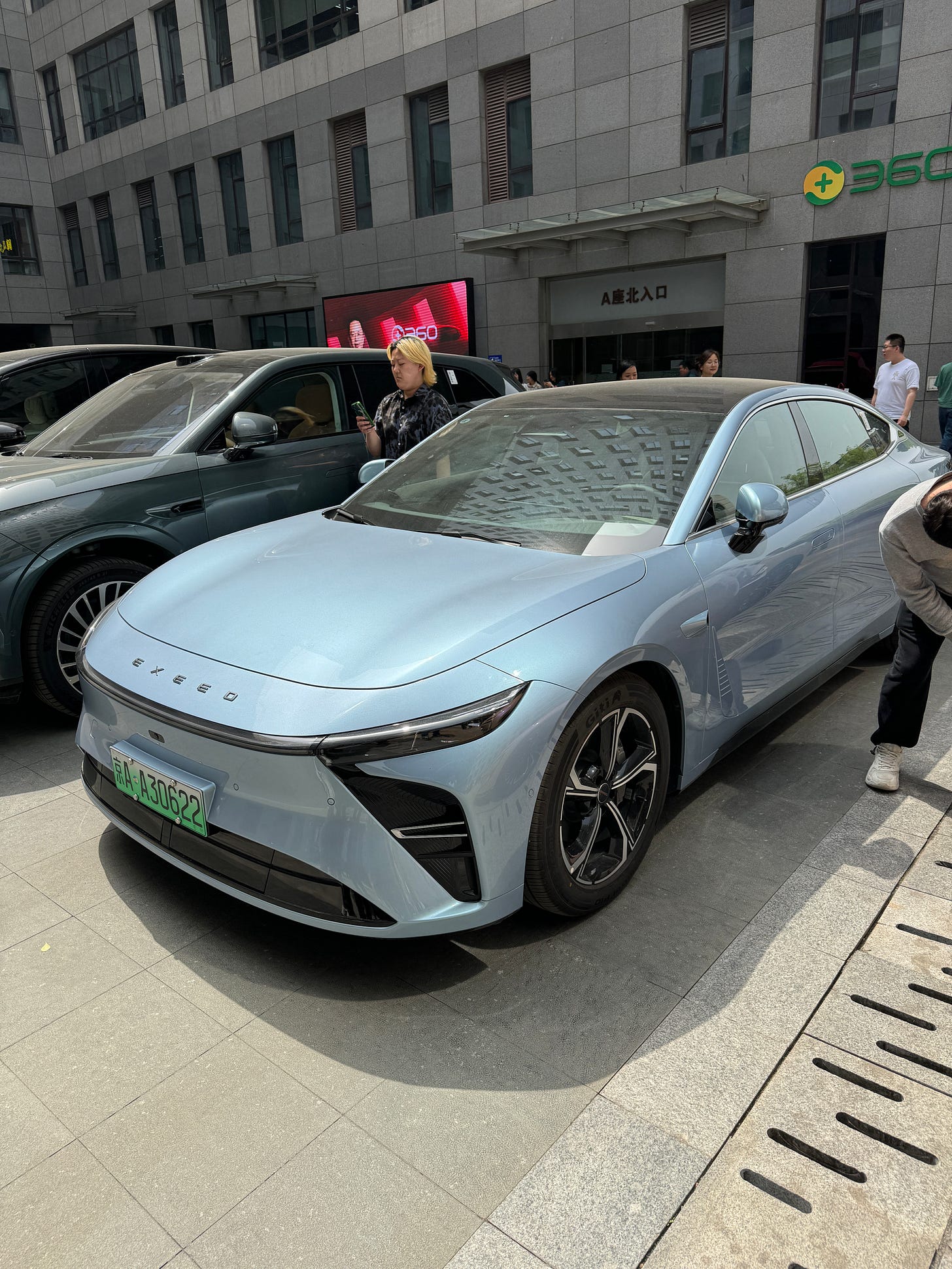
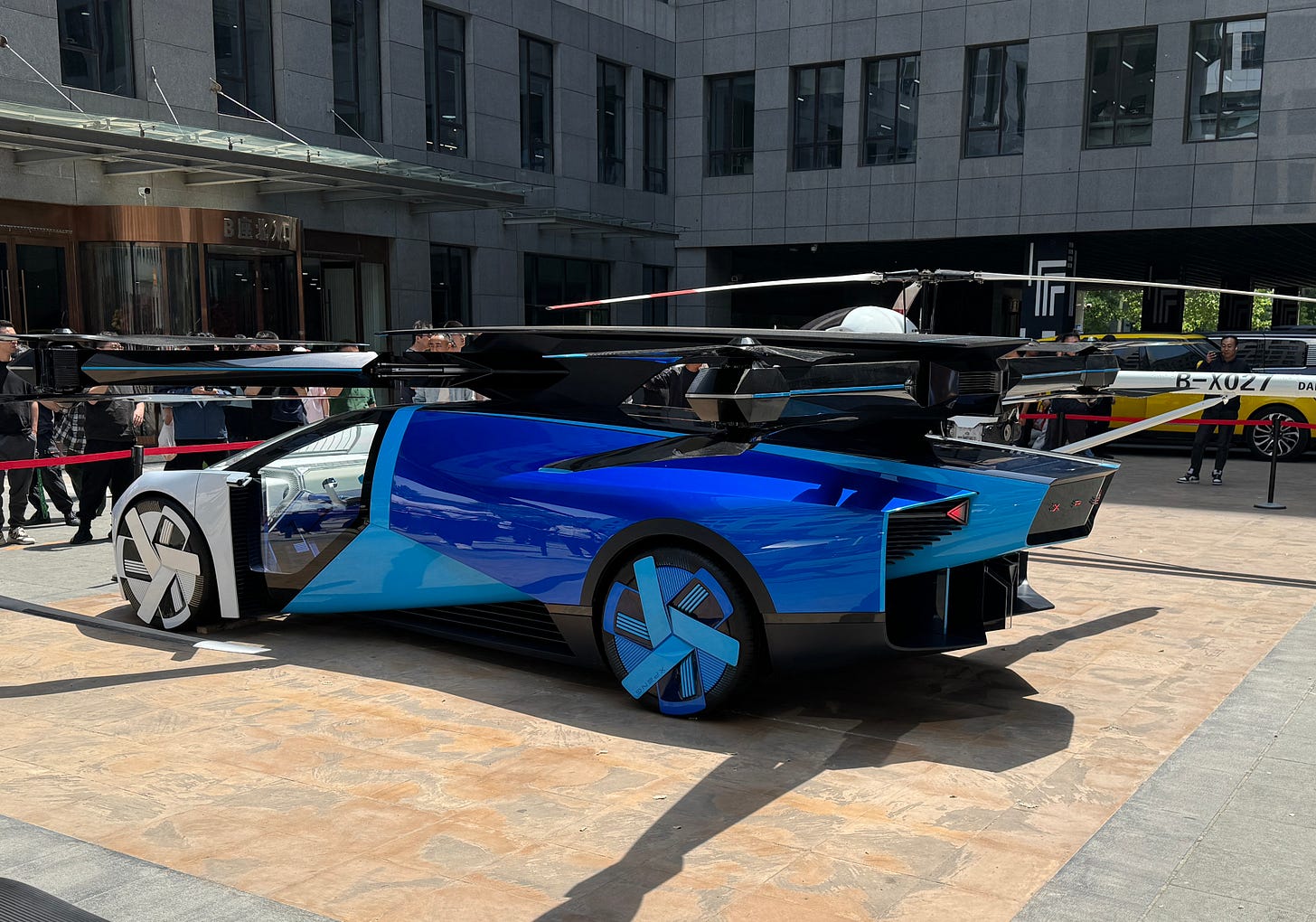
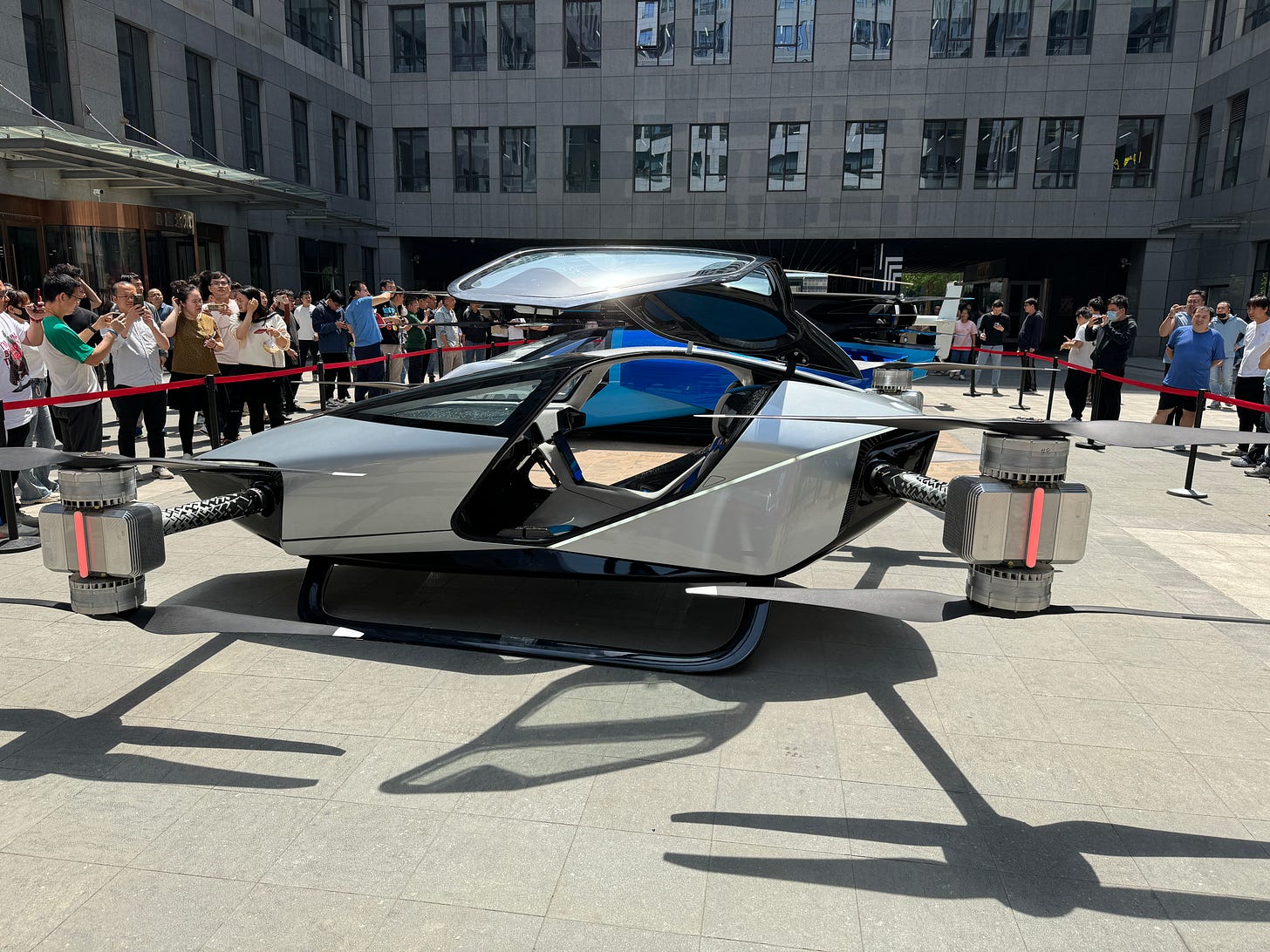
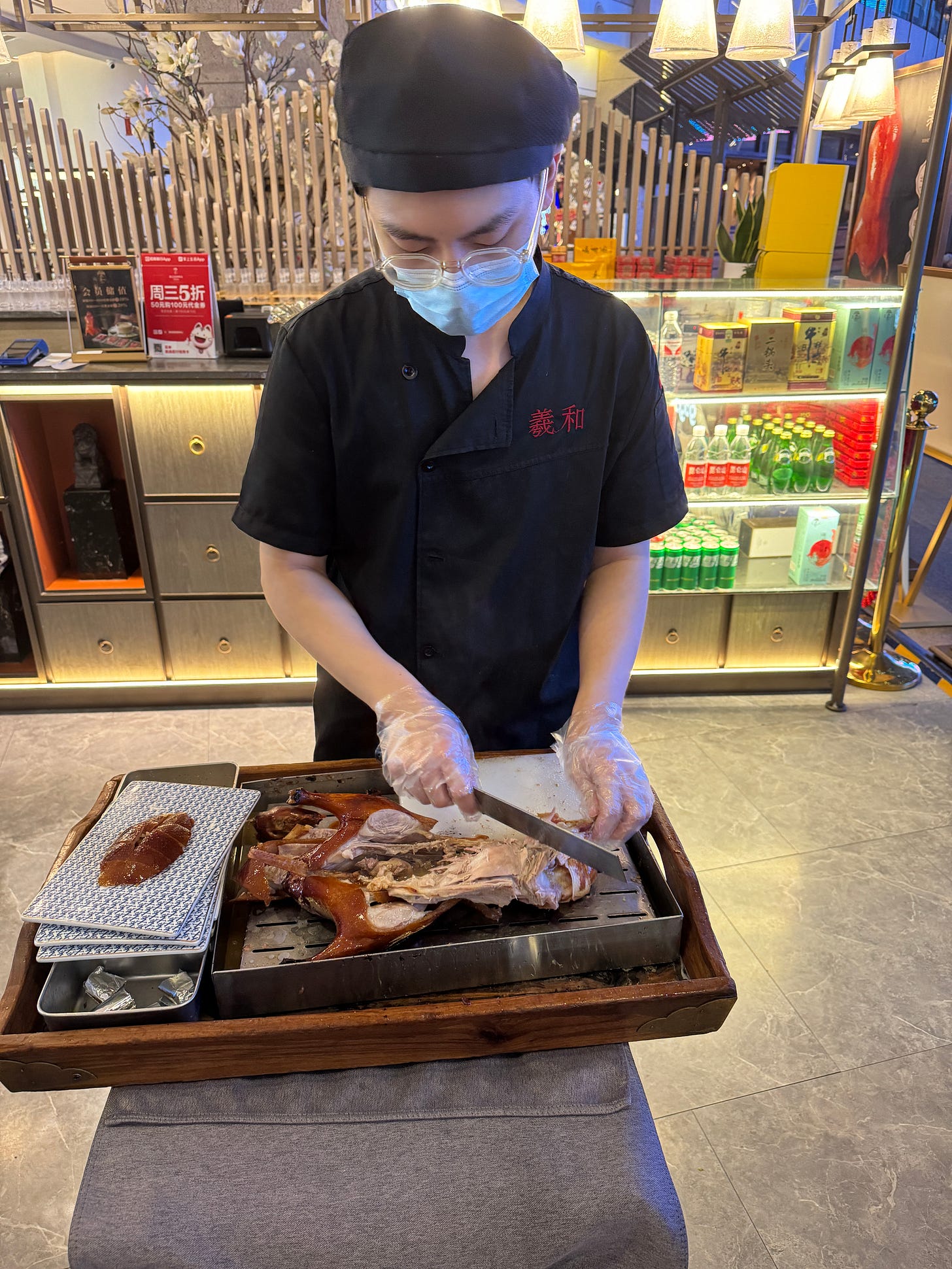
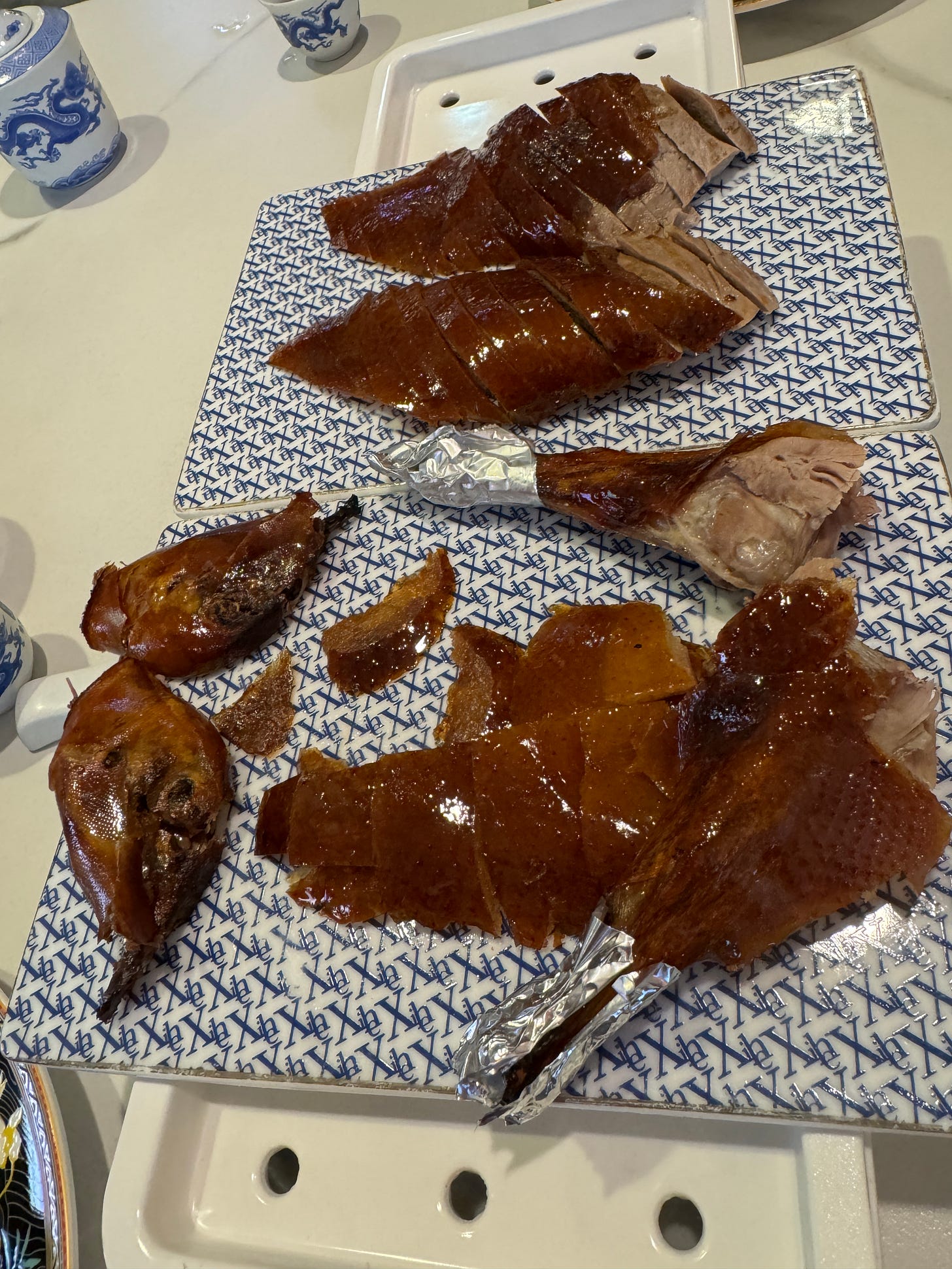
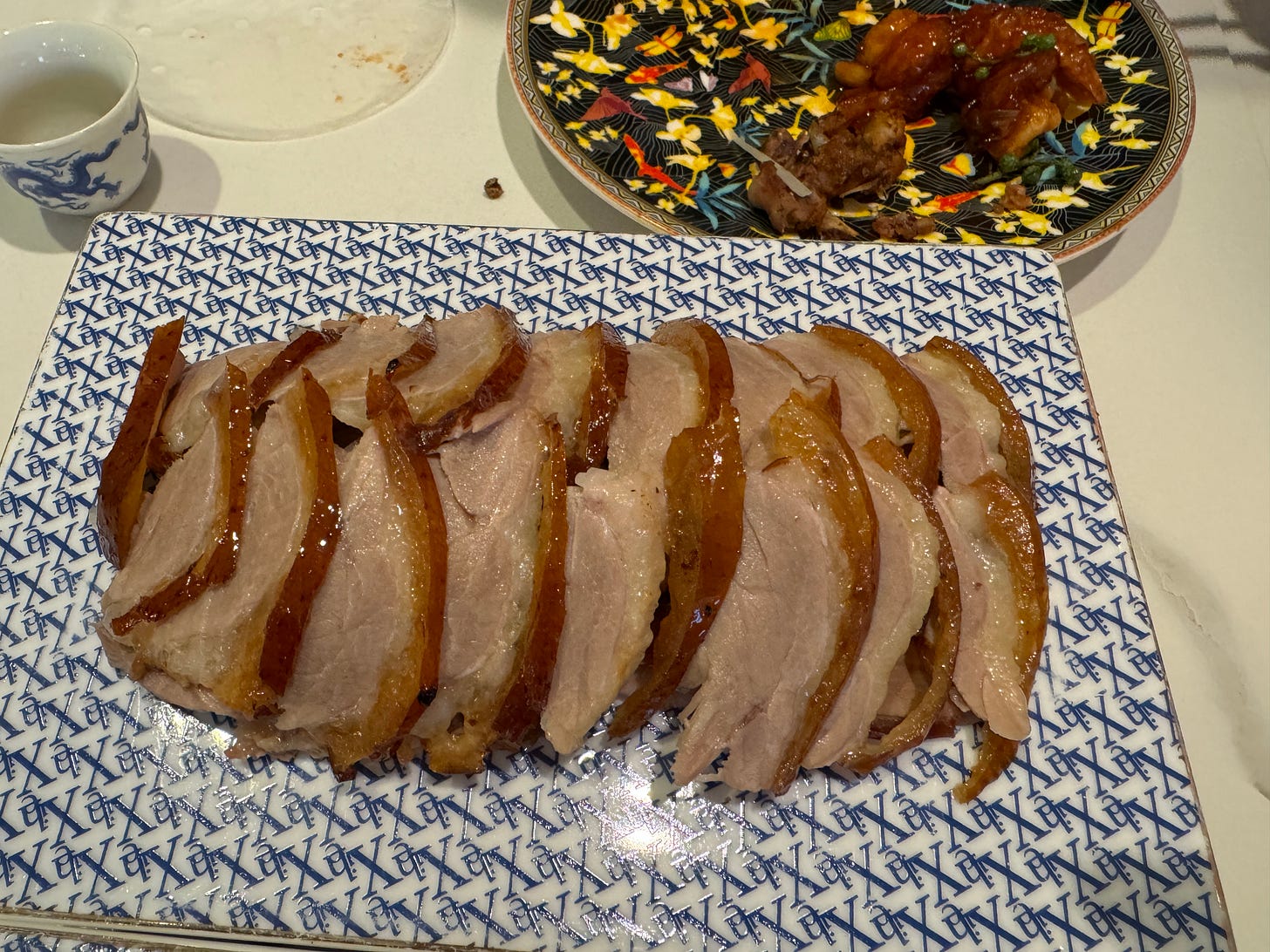
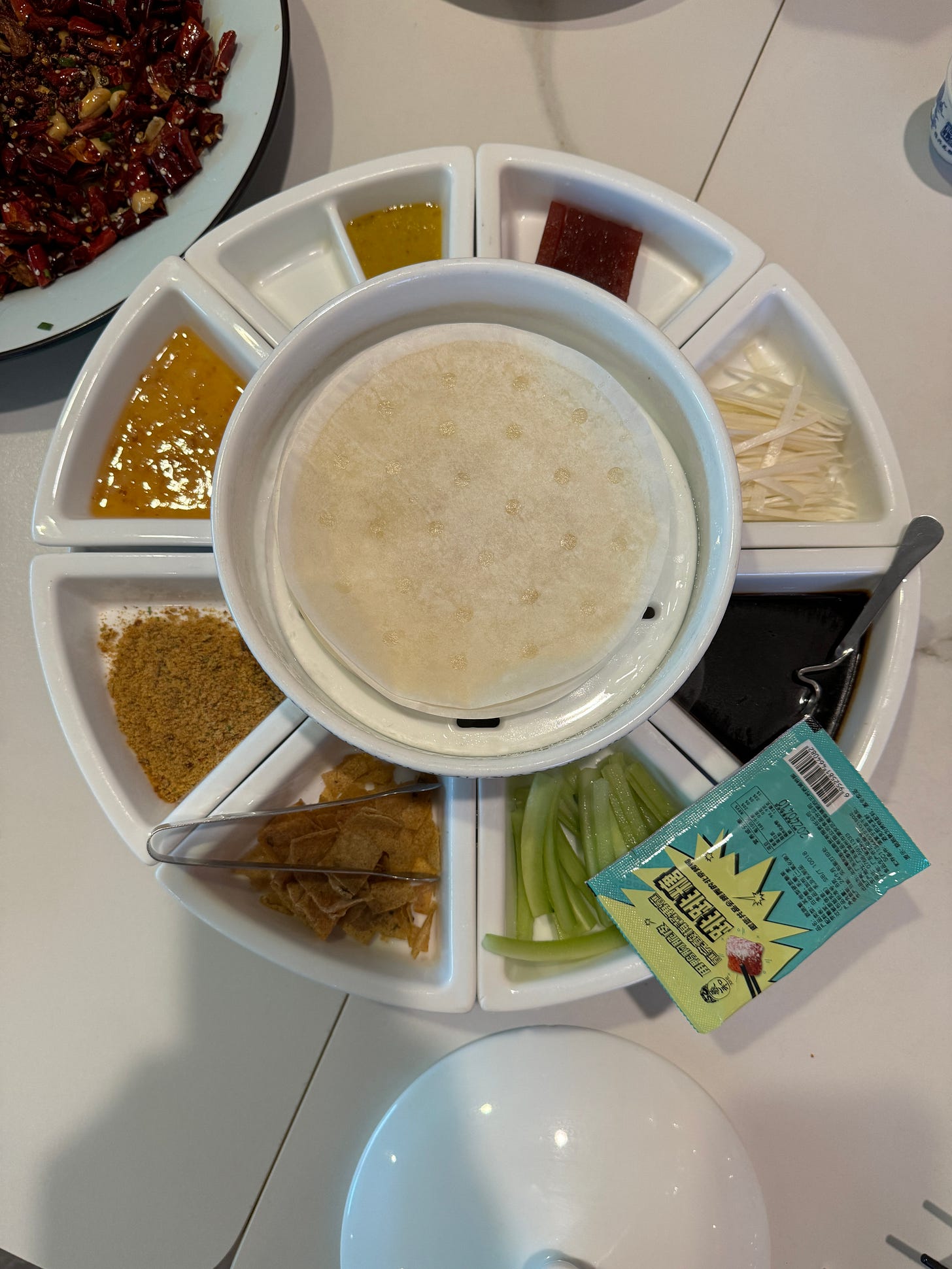
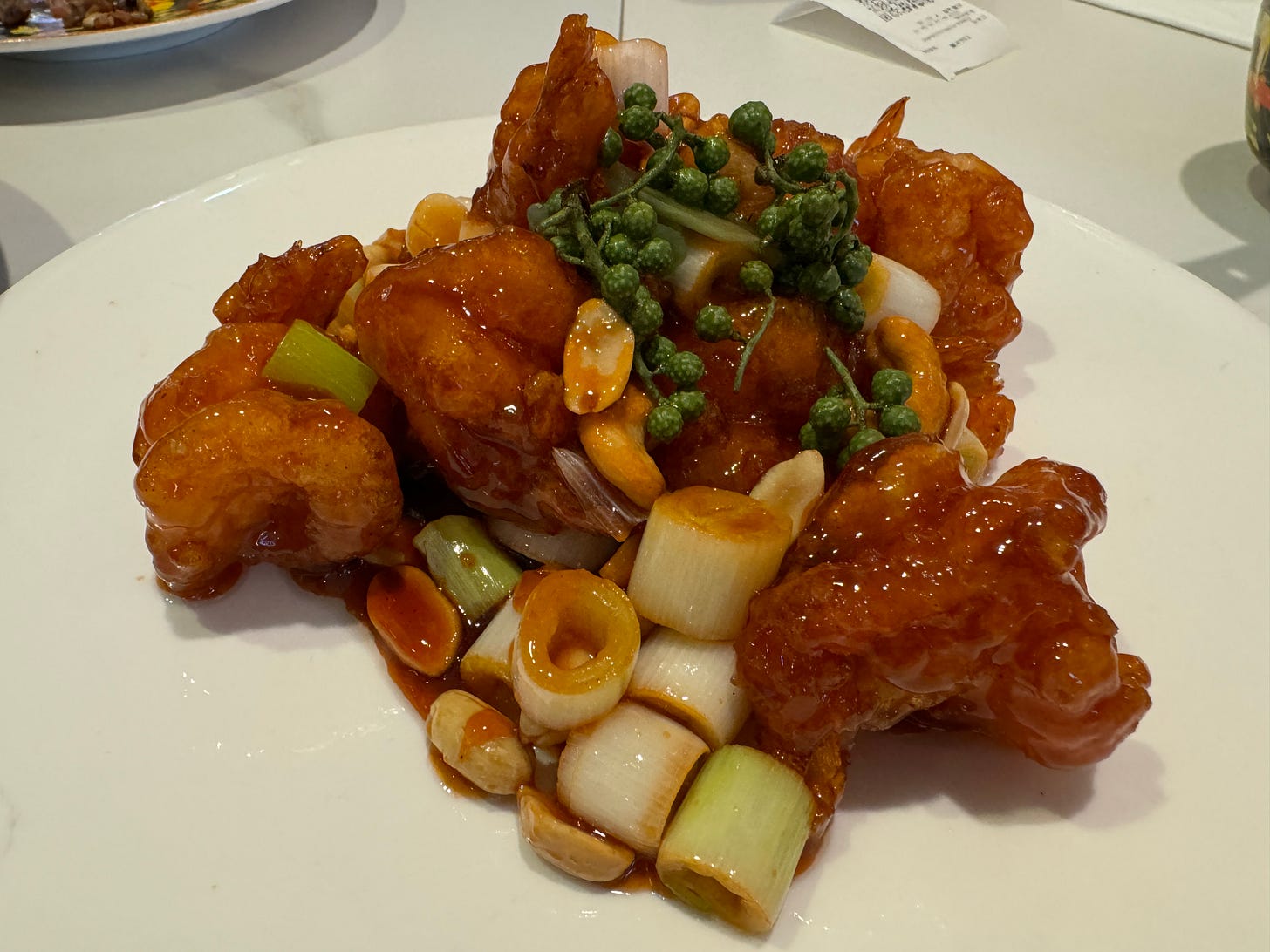
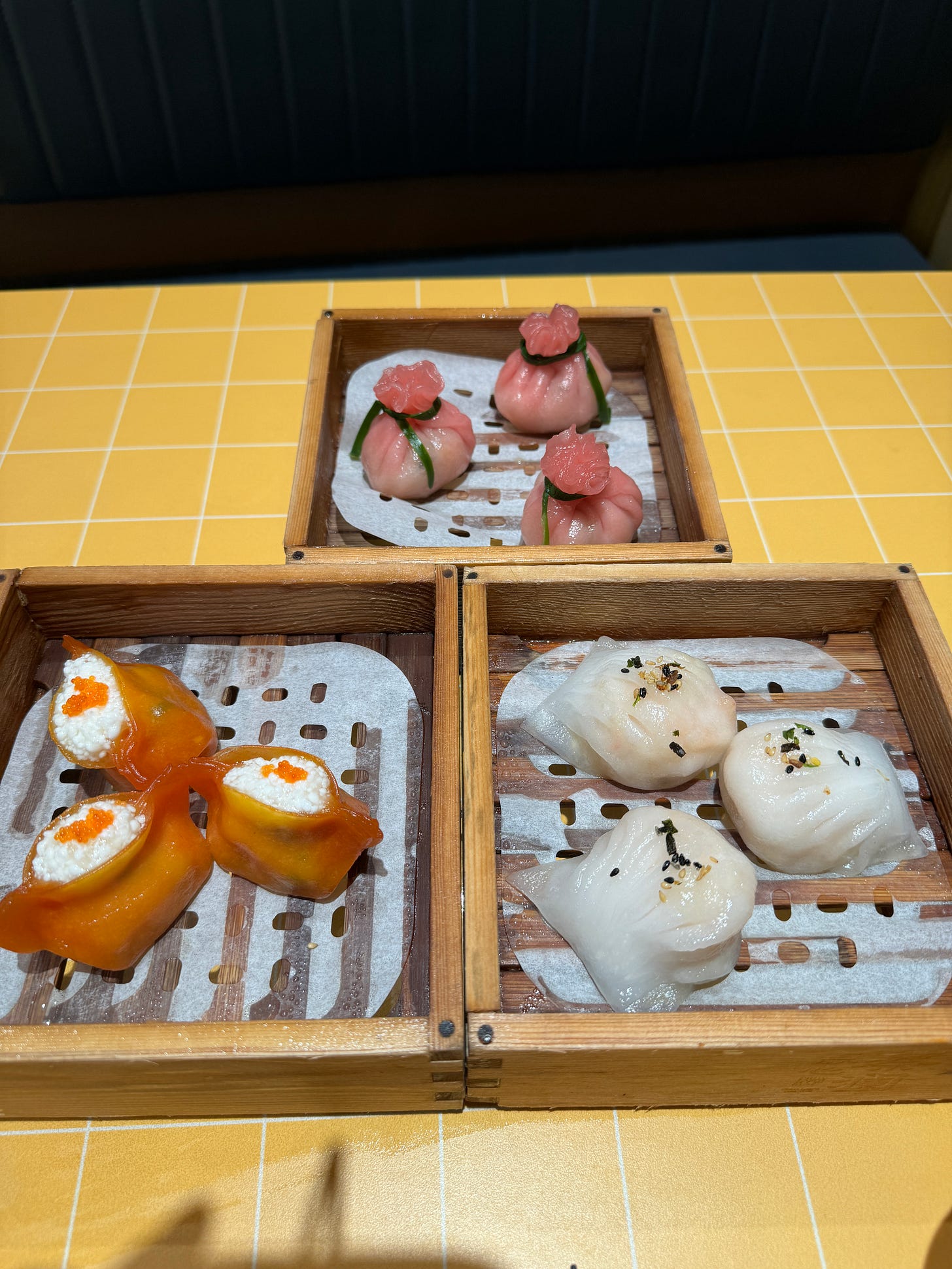
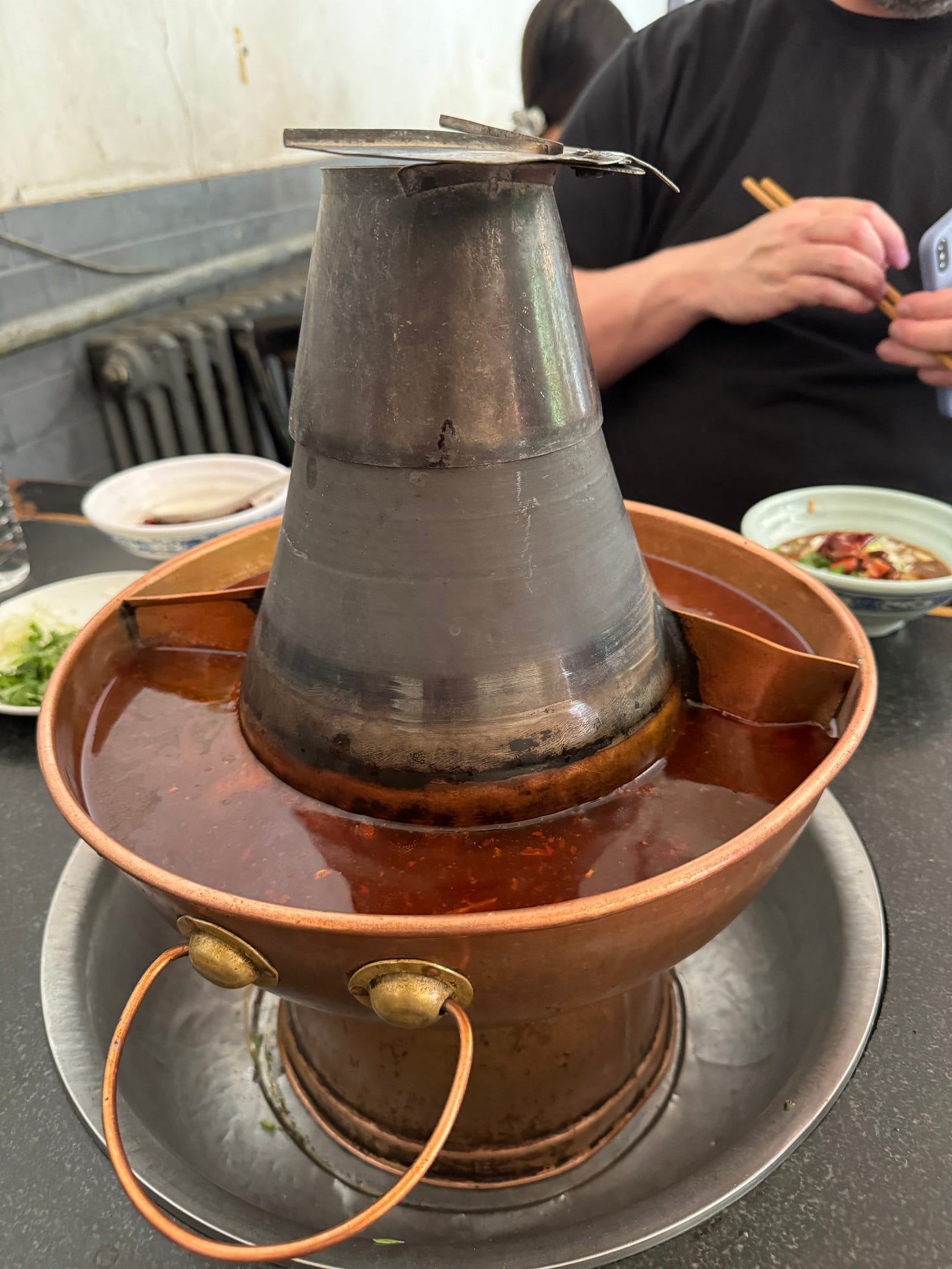
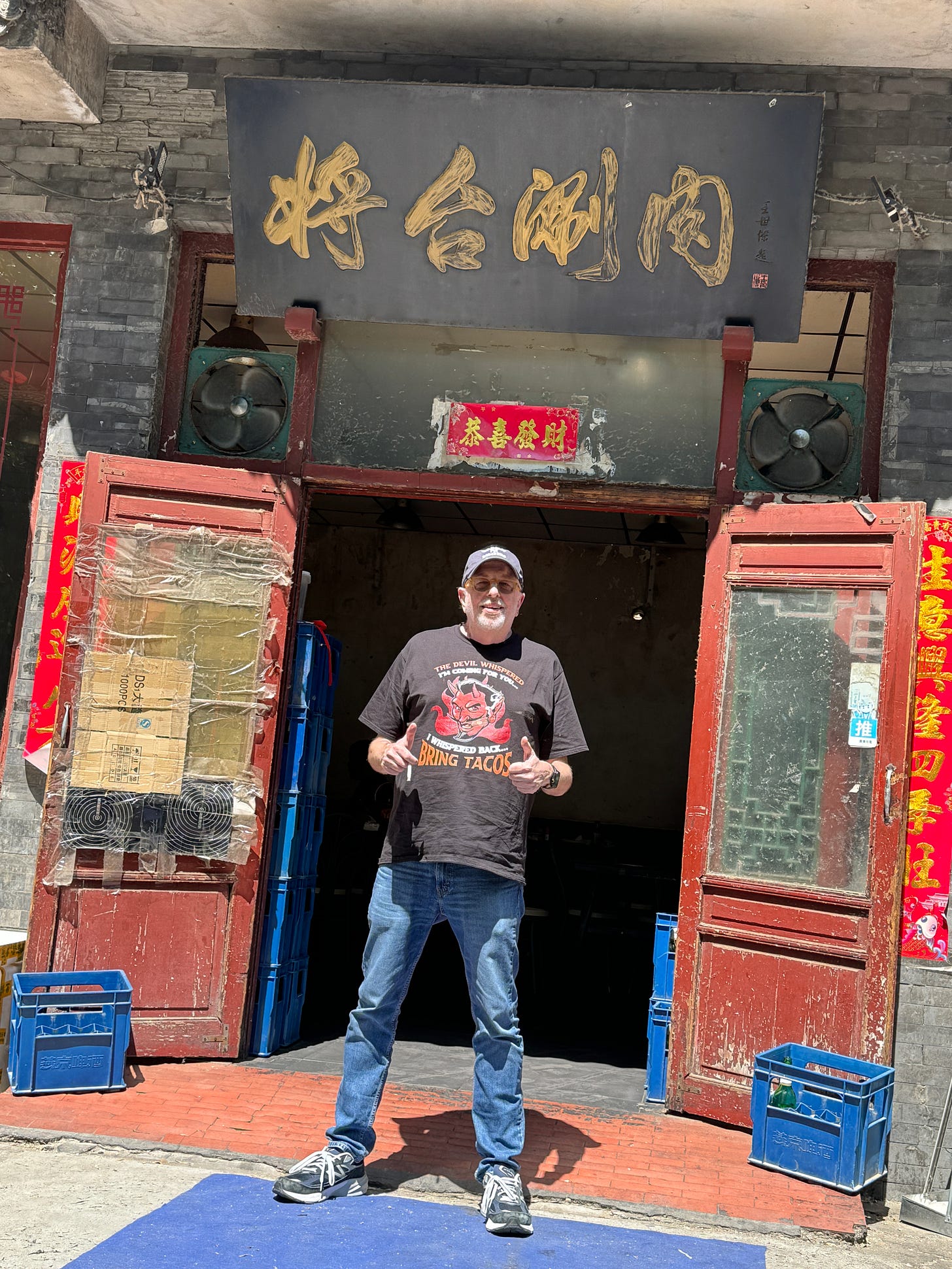
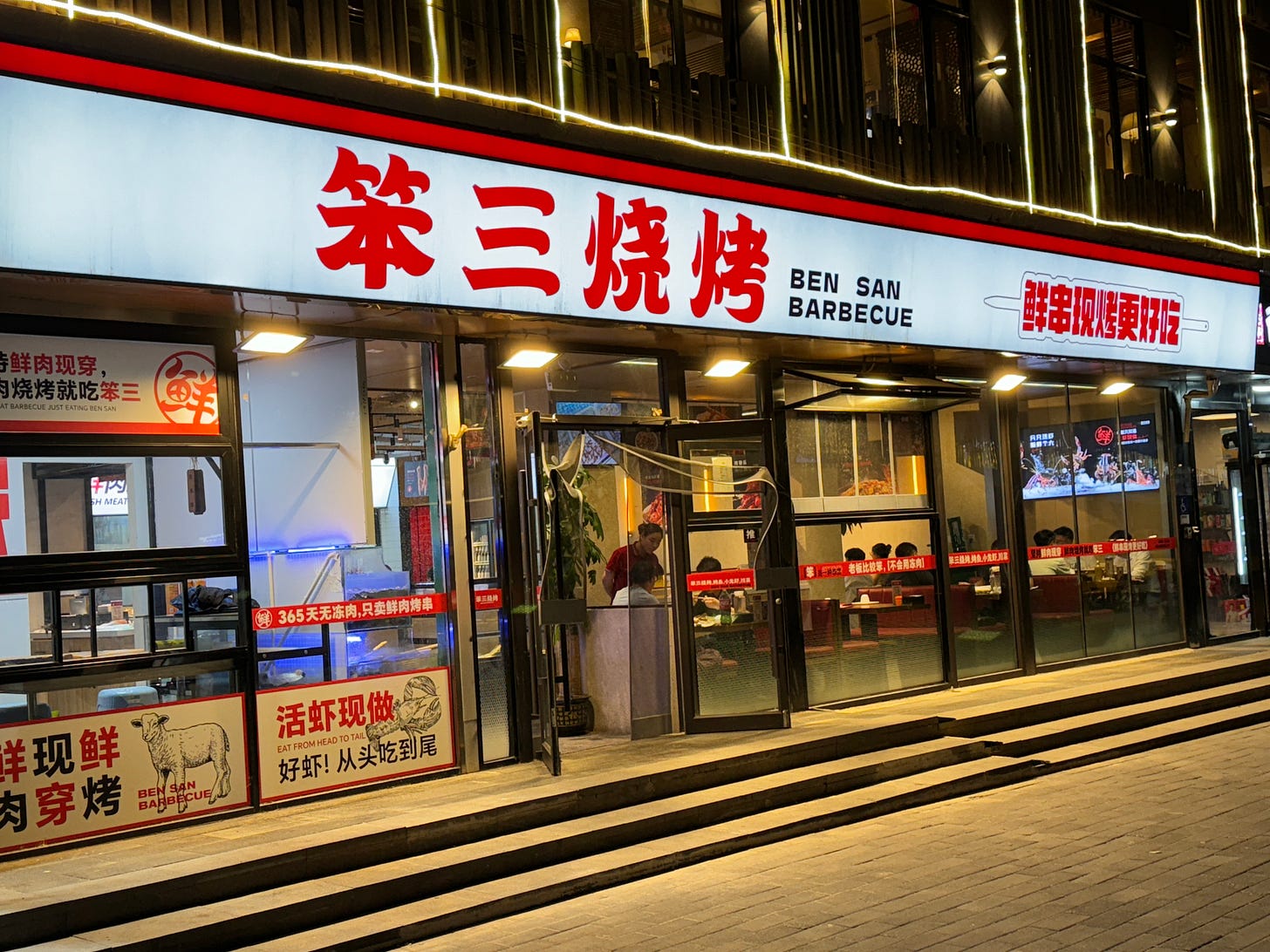
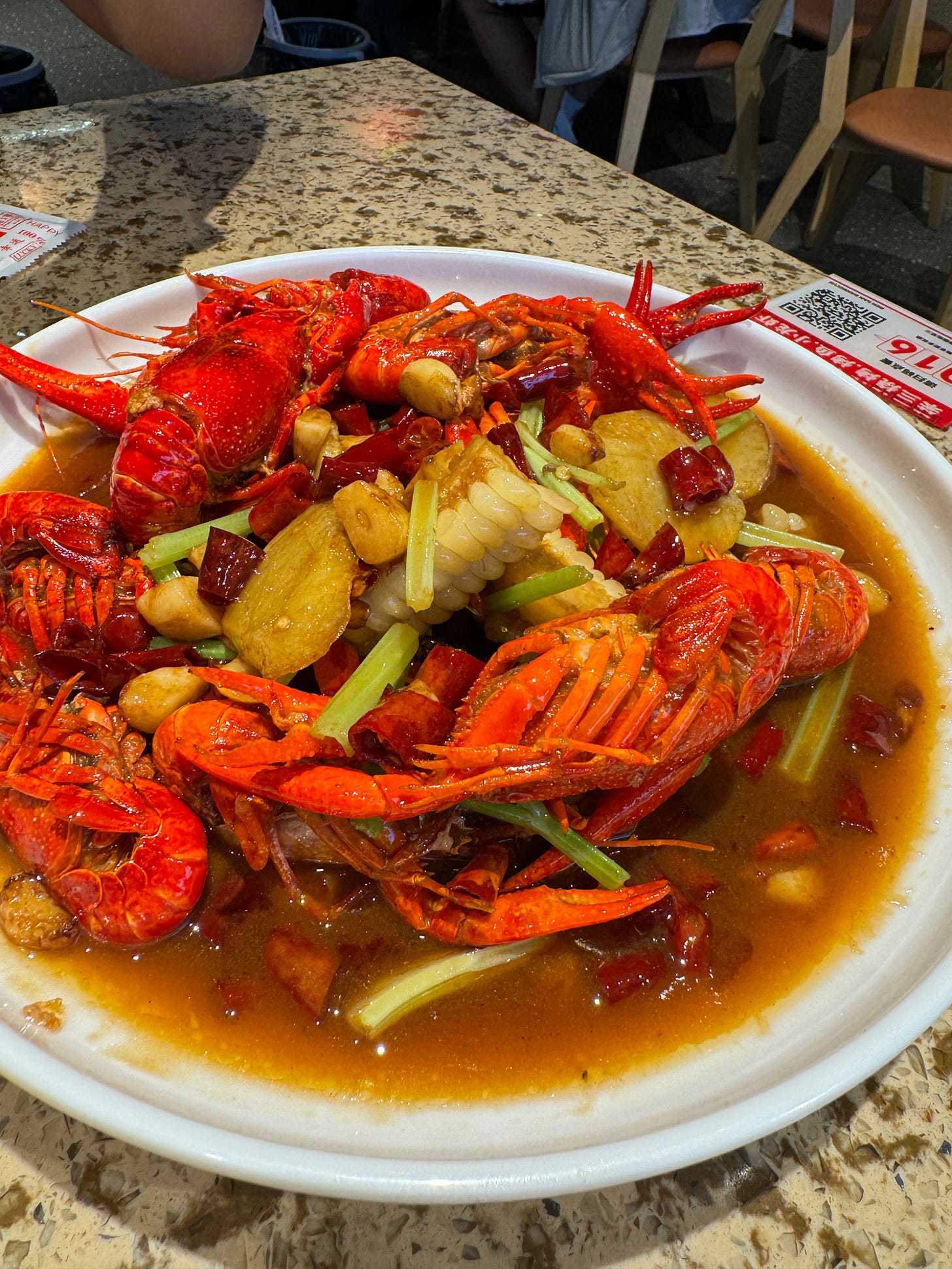
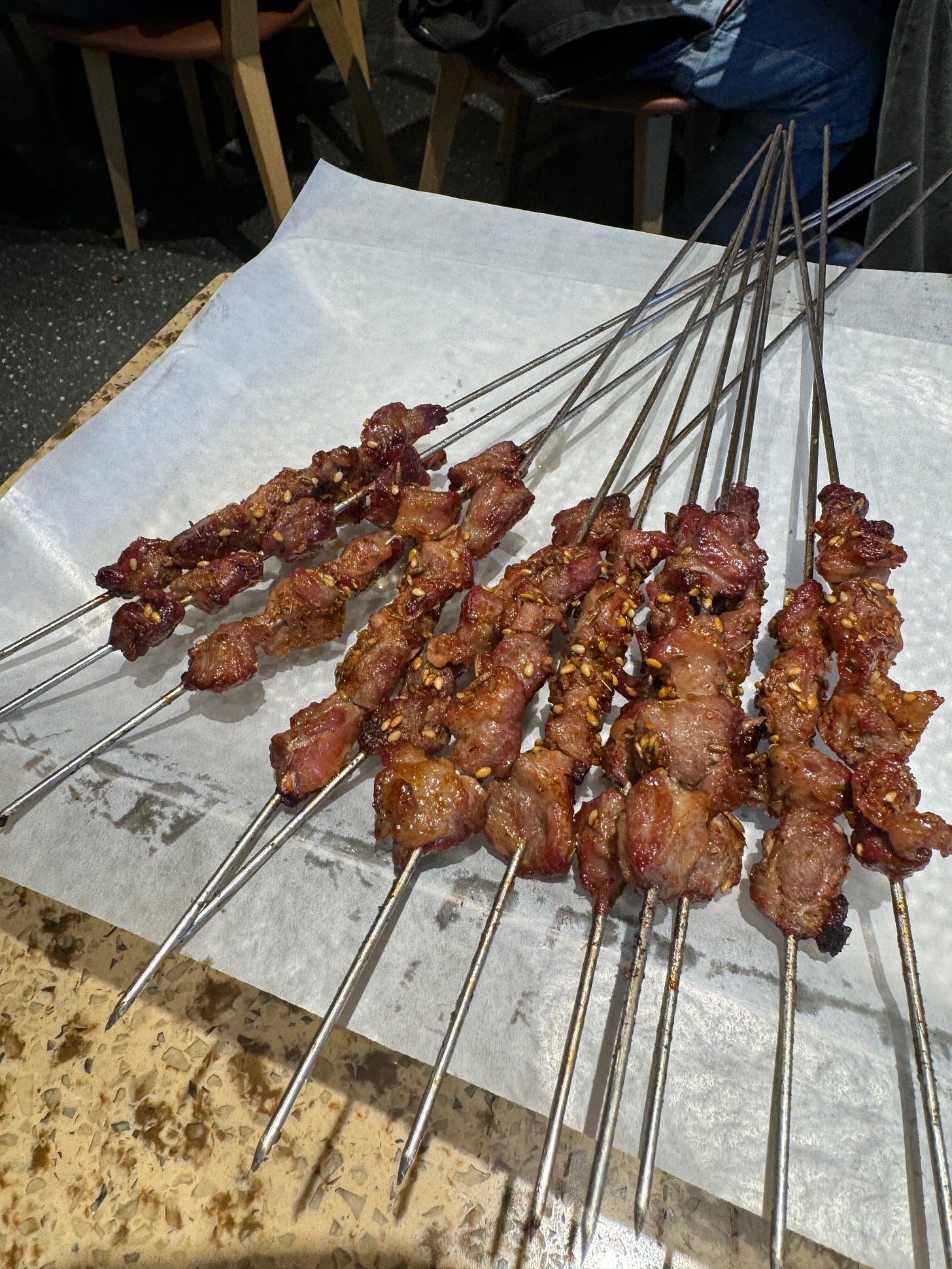
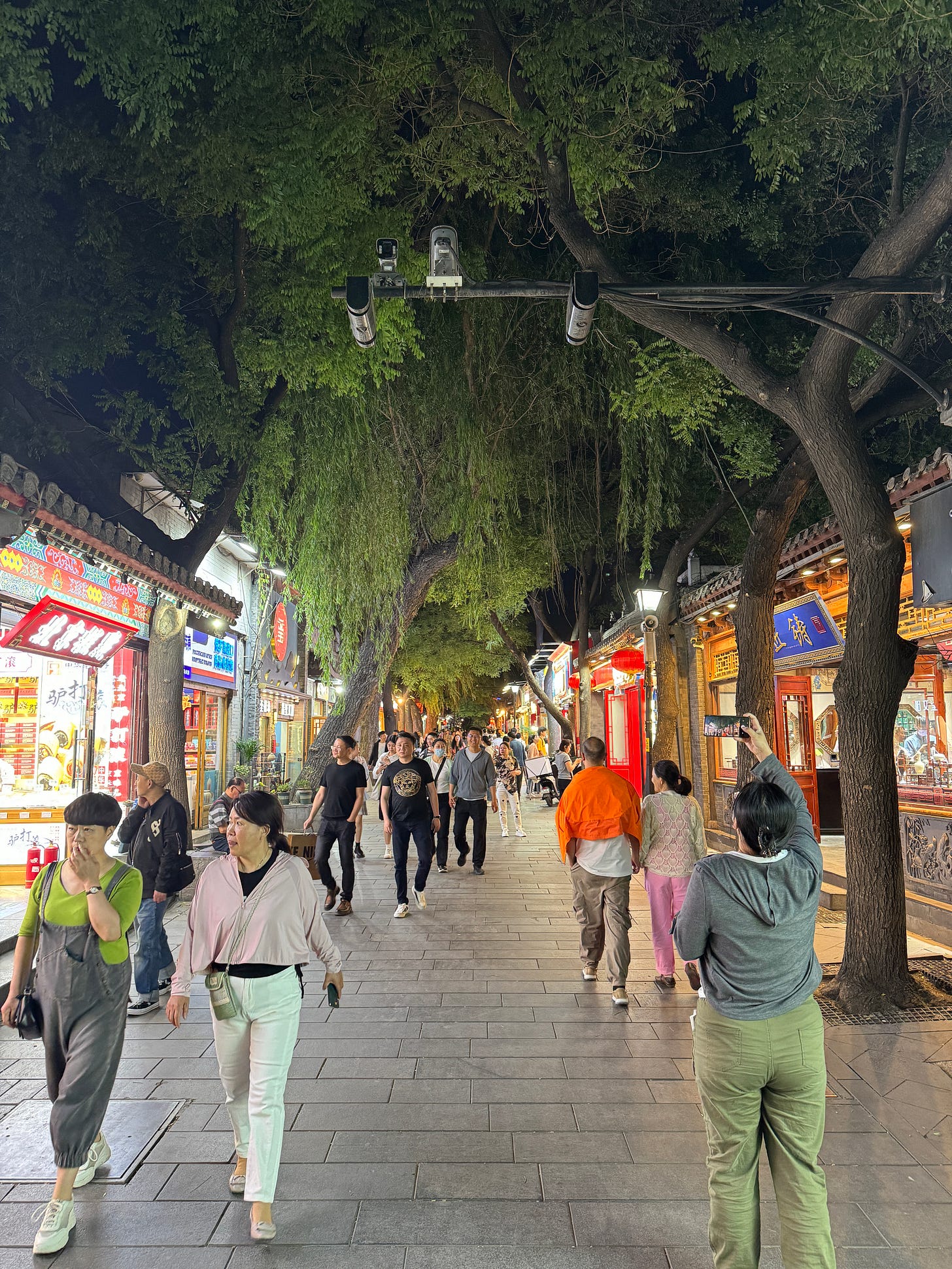
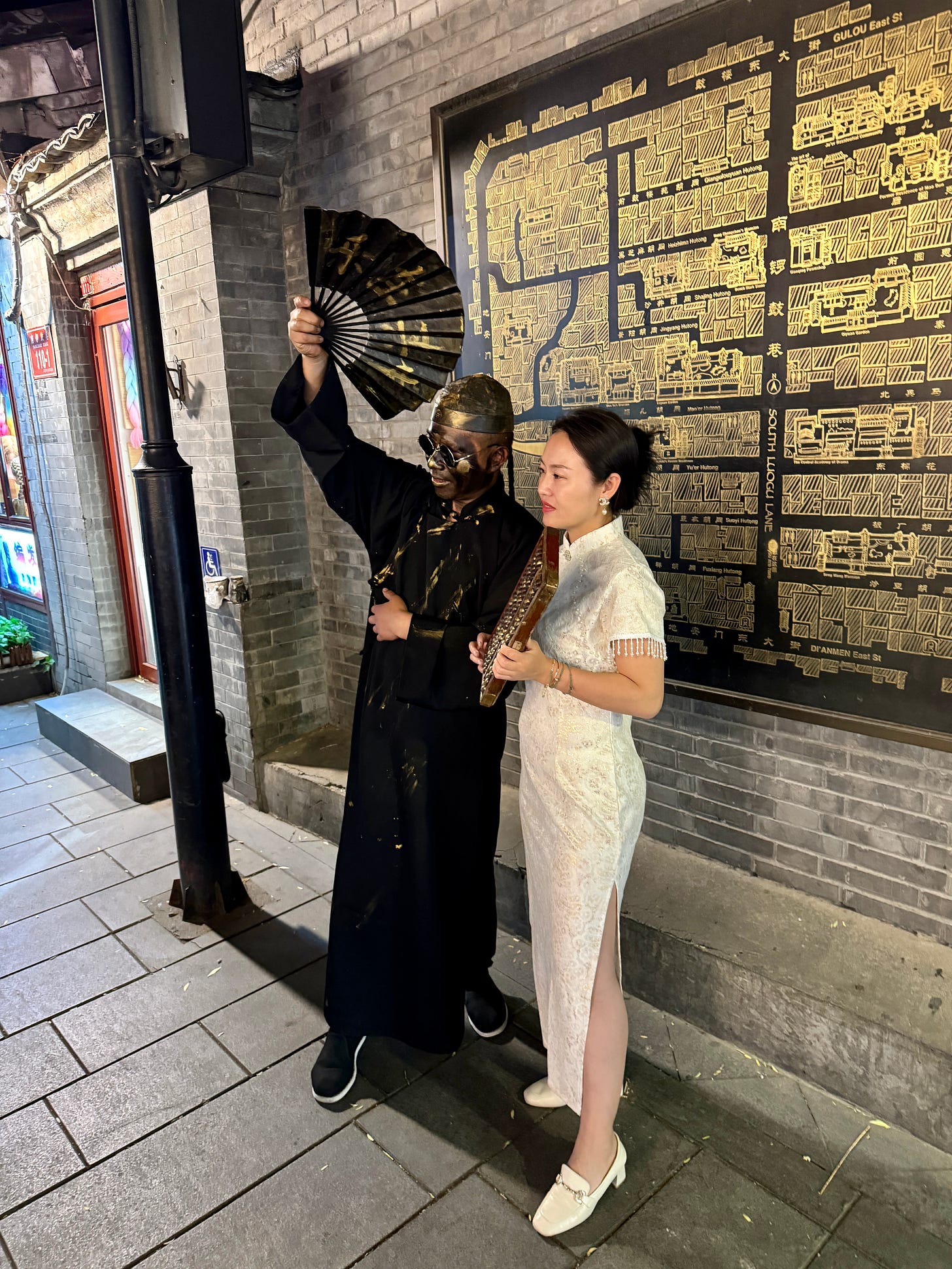
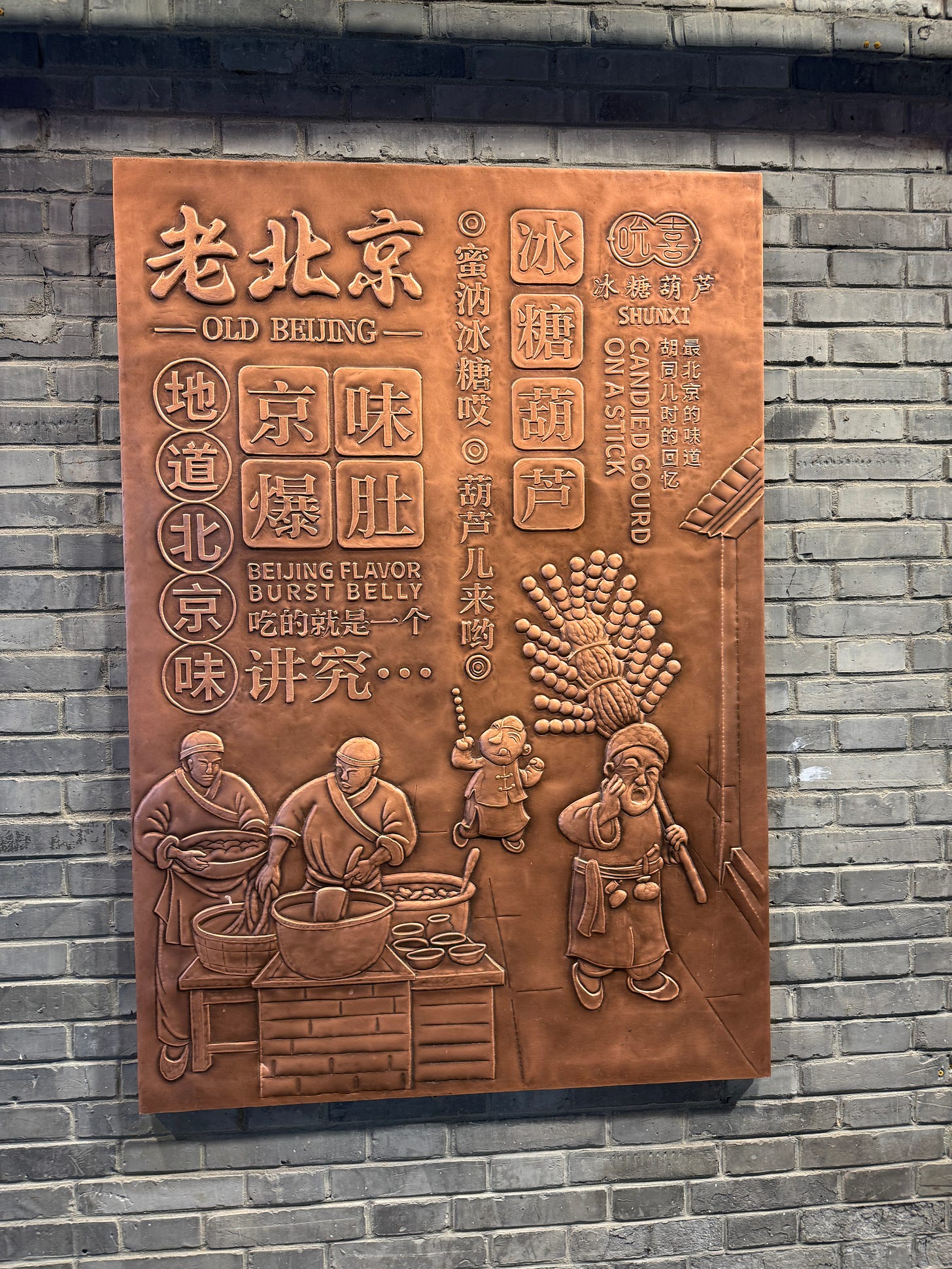
Ha....good timing and thanks for this as it looks like I'm going next week for a spell...